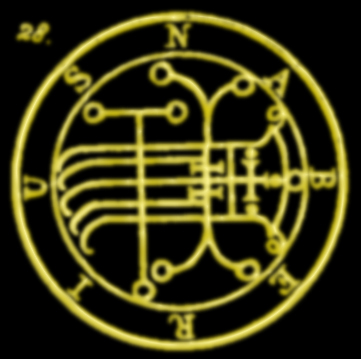This one time I was up at Dogtown North with the recording equipment, listening to the stories the prairie dogs were telling. I’d adopted a lunar cycle for my visits, something I felt it was at least possible they could use to develop a sense of pattern. I’d saved up for my own blind — basically a pop-up tent I could stand up in and set up my gear in and still keep cool — and built some of my own equipment to replace what I kept having to borrow from Earl, since he was turning into a bit of a prick. The novelty of the project wore off for him, though his name is still on the credits for my first Dogtown Recital EP. Now it was back to being a language and culture project, so Earl was back to being a stoner grab-ass.
I’d built a computer interface to build prairie dog composite words that let me tap out a series of adjectival modifiers and then hit a button for the noun and then it would play the dog-word either directly out of the database if I had a rendition from the recordings. Otherwise it would alter the noun-form in more or less standard ways to produce a good guess at how the dogs would say it. When I was stuck for a noun, if I could I would just show them an object and record what they had to say about it. I tried to show them pictures, but they didn’t get them. They were literalists. A picture of a hawk was a picture of a hawk to them. I couldn’t get them to talk about the hawk.
When I showed them a movie clip of a hawk on the computer, however, they got the picture. It took some convincing to get them to come back. I had to show them that it was trapped and that it couldn’t see them. I tried to tell them it was trapped the way I trapped and replayed their words, but that didn’t help at all. In their opinion, their trapped words got out just fine. I took movies of them and showed them, and that was almost as disturbing. They wailed if they couldn’t get the attention of the dog on the screen, who, of course, ignored them — even if the dog was present that I’d filmed. I nearly wore out my “all clear” buttons telling them it was okay.
At full moon and the dark of the moon I’d show up and start around dusk by telling two stories I’d composed, one straight tale and one poem-song, full of repetition and different approaches to rhyme — words with similar sounds, words with similar modifiers, regular uses of the same base-nouns with different modifiers. I could tell when things fell flat. I kept things short, at least on a human scale, and kept the complexity pretty close to Sesame Street. I’d repeat my stories a couple of times, and then I’d set up the recording equipment to see if they’d brought any stories.
Sometimes I’d hear snippets of the stories I told and repeated phrases that I chose to interpret as requests for me to retell stories from previous visits. The original stories I heard back were usually pretty short, five to ten words, and basically what amounted to news. Someone ran away from a snake. Someone ate a scorpion. Someone got snatched by a hawk but was dropped and is laid up in the burrow nursing a big bruise and her name now includes the modifier for “cranky”. When I finally worked out that story, I spent a few minutes turning it into a poem-song about her flight and fall, with a stanza afterward with her going about her day normally after a long rest, so as to give it a hopeful ending.
Before I give you the wrong impression about their communicative skills, all of this was like talking to toddlers. Not only are there issues about limited grammar and vocabulary and verb tenses and such, but you really can’t just pick them up and make them talk. Establishing a routine “open mic nite” was pretty much the only thing I could think of to help them open up, as it were. Sometimes it took days on my part to sort through the recordings and tease out the words and their subtle shades of modifiers. And sometimes it just seemed like babble.
It took me weeks before I even partially deciphered the repeated story, sometimes told in fragments, of the dead coyote that sang to them on moonless nights about digging a deep hole to fill with grasses and roots for the coming time of the hawk-sun that snatches away anyone the light touches. And of course it only really made sense a week or two later, when the sunburn started up.
Dogtown North came through it a little dehydrated, and had some rough times with the alternating dustbowl and rough storm conditions afterward, but they were basically okay. They’d been warned a month in advance, after all. I wish I’d been able to understand it in time to pass the warning along, but who would have believed me?
[*]







More whimsical than your usual, I think, and your voice is just as clear. I smiled the whole time. :)
Heh. Thanks! This was story #2 in the Dogtown story-path — a follow-up to the initial one that was a little more bizarre and light-hearted, a smidge less technical. I forget the number of the other, but you might be able to find it in the index…
[*]